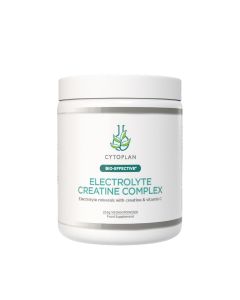What can I do to improve my menopause symptoms?
The menopause is a natural part of ageing that typically affects women between the ages of 45 and 55 and is triggered as a woman’s oestrogen levels begin to decline. For many women this natural stage in life can become a time of physical and emotional discomfort, and the most common symptoms include hot flushes, night sweats, insomnia, anxiety, mood swings and weight gain.
The good news is that consuming a nutrient dense diet and optimising the intake of specific nutrients, as well as making some lifestyle changes can help significantly in maintaining a healthy menopause and make a real difference to how you feel.
Phyto-oestrogens
Foods rich in plant phyto-oestrogens are believed to help maintain hormonal balance. Phyto-oestrogens are plant compounds that resemble the chemical structure of human oestrogen which can mimic its action in the body – and this mild oestrogenic effect can help to reduce menopausal symptoms. They are abundant in pulses, seeds, beans and soya; which helps to explain why populations that consume predominantly plant-based diets generally experience lower rates of menopausal symptoms.
Support the Adrenal Glands
The adrenal glands produce stress hormones such as cortisol and adrenaline, which helps the body to deal with stress, but will also take over some of the work of the diminishing ovaries by continuing to produce oestrogen after the menopause.
- Reduce/Avoid Stimulants such as caffeine, which increases the production of cortisol and adrenaline and therefore can affect oestrogen levels. It can also affect your sleep cycle, which puts further pressure on the adrenals.
- Balance blood sugar levels – Adrenal gland function is considerably influenced by blood sugar levels and a diet high in sugar or refined carbohydrates can cause the body considerable stress. Instead opt for a diet rich in fresh vegetables, nuts, seeds and oily fish and reduce your intake of refined and processed foods, chocolate, sweets, cakes, and biscuits.
- Nutrients that can help to support adrenal gland function include Vitamin C, Magnesium and the B Vitamins, which also provide energy and regulate mood swings
Menopause and Osteoporosis
Oestrogen helps to prevent deterioration of bone tissue and maintain bone density. The long-term effects of low oestrogen levels can therefore increase the risk for postmenopausal osteoporosis. Ensuring you get plenty of food sources of magnesium and calcium, as well as vitamin K will help to support the integrity of the bone. Vitamin D is also very important but difficult to get through diet, so it may be necessary to supplement over the winter months when we can’t synthesise it from sunlight.
Lifestyle Considerations
Gentle exercise is useful for relieving stress and anxiety and weight-bearing exercises can help to strengthen bones and improve density.
Sleep is fundamental for health and regeneration and the healthy production and balance of hormones. During the menopause declining levels of oestrogen and progesterone can be unsettling and may contribute to insomnia, night sweats and other sleep issues but yoga/mindfulness, as well as nutrients such as magnesium, L-Theanine and Montmorency cherry can help to support healthy sleep.



